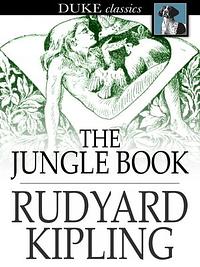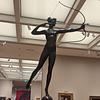You need to sign in or sign up before continuing.
Take a photo of a barcode or cover
I read this in Croatian so I didn't really understand that much. I think I'll re-read this in Swedish.
I liked less than half the stories. A few like the seal story, the one about the crocodile and jackal were nice and the military animal story was great, but mostly reading about Mowgli, the Innuits, and the abused elephants were not fun at all.
adventurous
challenging
lighthearted
relaxing
medium-paced
Plot or Character Driven:
Character
Strong character development:
Yes
Loveable characters:
Yes
Diverse cast of characters:
Yes
Flaws of characters a main focus:
No
A classic. Read it as a youngster and as an adult. Worth revisiting.
Really loved these stories. It included the Mowgli stories as well as some other stand alone ones. All of them involved animals and were quite fun to read.
I seriously enjoyed this book. I really loved 'The White Seal' bit...
This is the only Mowgli stories book that I have found that includes "In the Rukh," a story about him as an adult.
Seriously, if your only experience of Mowgli is "Mowgli's Brothers" or, worse, the Disney version, you are missing out. The Jungle Books are also great for book collectors, as they have been reprinted many times, often with lovely illustrations. But do read them.
Seriously, if your only experience of Mowgli is "Mowgli's Brothers" or, worse, the Disney version, you are missing out. The Jungle Books are also great for book collectors, as they have been reprinted many times, often with lovely illustrations. But do read them.
I started these books with the kids but they petered out in the second Jungle Book. They (and I) loved the Mowgli stories, the White Seal, and Rikki-tikki-Tavi. All of the Mowgli stories were fantastic. I loved seeing how Mowgli interacted with the wolf pack, Kaa, Bagheera, and Baloo. It was so sad when he left the jungle but it needed to happen.
The other stories were interesting but they weren’t told with the charm and action of Mowgli’s stories. The second Jungle Book seemed ponderous at times, especially the Inuit story. It was interesting to me that Kipling spent so much time in the jungle so why have the Inuit stories? They seemed out of place even though I enjoyed The White Seal.
If you were to read The Jungle Books, and you feel yourself getting bogged down in one story, skip it, and pick up the next Mowgli story. You can always return. OH! Can’t forget the poetry in between! Also very good.
Kipling is fast becoming one of my favorite authors. :)
The other stories were interesting but they weren’t told with the charm and action of Mowgli’s stories. The second Jungle Book seemed ponderous at times, especially the Inuit story. It was interesting to me that Kipling spent so much time in the jungle so why have the Inuit stories? They seemed out of place even though I enjoyed The White Seal.
If you were to read The Jungle Books, and you feel yourself getting bogged down in one story, skip it, and pick up the next Mowgli story. You can always return. OH! Can’t forget the poetry in between! Also very good.
Kipling is fast becoming one of my favorite authors. :)
All I've ever known really about the Jungle Book was confined to the film version, which is a far cry from Rudyard Kipling's original. My first surprise, was that this was an anthology, not just the story of Mowgli (but that is by far the best story in the collection). My next surprise came in the language of the story. Kid's read this?
This story did wonders to explain the gaps in learning, creativity. boldness, and initiative between previous generations and the current one. In the 19th century, kids idolized and fantasized about being Mowgli, living among wild animals, learning the laws of the jungle, and eventually defeating your nemesis (a man eating tiger, who Mowgli not only kills, but skins). In the 21st century, we have team Edward, idolizing a pale, skinny pathetic vampire creature who can't manage his love life. Fail. And it's not the difference in machoness that is upsetting, it's the culture of self-reliance and overcoming of obstacles and dedication to a goal that is missing in literature today. For a long time, children's stories were educational, moralistic as well as entertaining. Today, we opt for the latter at the expense of the rest. It is, of course, important to analyze the message being sent and ingrained in our children's psyche, but a modern audience, sad to say, wouldn't really pick up on the imperialistic and social darwinistic themes in the stories (I mean come on, this is Mr. "White Man's Burden".
The other stories in this collection were okay. The second story is the story of Kotick, a white seal (yes white, which makes him superior in the Kiplingesque view of the universe) who attempts to find a new home for the seals of the Aleutians where they won't be hunted by man anymore (a rather obvious allusion to the growing Zionist movement of the late 19th century). The next is the story of Rikki-tikki-tavi, a faithful pet mongoose who defends his adopted human family from cobras. Lastly, is the story of Toomai of the Elephants, a young Indian boy who observes the legendary dance of the elephants and is forever changed by it.
Besides the overtones of supremacy there are wonderfully modern themes in many of the stories: loyalty, the sanctity of nature, the importance of every individual, not just in society, but in their ecological niche, and the relationship and interdependency of man and nature. In spite of it's age, The Jungle Book is hardly dated, and I look forward to sharing it with my children.
This story did wonders to explain the gaps in learning, creativity. boldness, and initiative between previous generations and the current one. In the 19th century, kids idolized and fantasized about being Mowgli, living among wild animals, learning the laws of the jungle, and eventually defeating your nemesis (a man eating tiger, who Mowgli not only kills, but skins). In the 21st century, we have team Edward, idolizing a pale, skinny pathetic vampire creature who can't manage his love life. Fail. And it's not the difference in machoness that is upsetting, it's the culture of self-reliance and overcoming of obstacles and dedication to a goal that is missing in literature today. For a long time, children's stories were educational, moralistic as well as entertaining. Today, we opt for the latter at the expense of the rest. It is, of course, important to analyze the message being sent and ingrained in our children's psyche, but a modern audience, sad to say, wouldn't really pick up on the imperialistic and social darwinistic themes in the stories (I mean come on, this is Mr. "White Man's Burden".
The other stories in this collection were okay. The second story is the story of Kotick, a white seal (yes white, which makes him superior in the Kiplingesque view of the universe) who attempts to find a new home for the seals of the Aleutians where they won't be hunted by man anymore (a rather obvious allusion to the growing Zionist movement of the late 19th century). The next is the story of Rikki-tikki-tavi, a faithful pet mongoose who defends his adopted human family from cobras. Lastly, is the story of Toomai of the Elephants, a young Indian boy who observes the legendary dance of the elephants and is forever changed by it.
Besides the overtones of supremacy there are wonderfully modern themes in many of the stories: loyalty, the sanctity of nature, the importance of every individual, not just in society, but in their ecological niche, and the relationship and interdependency of man and nature. In spite of it's age, The Jungle Book is hardly dated, and I look forward to sharing it with my children.







